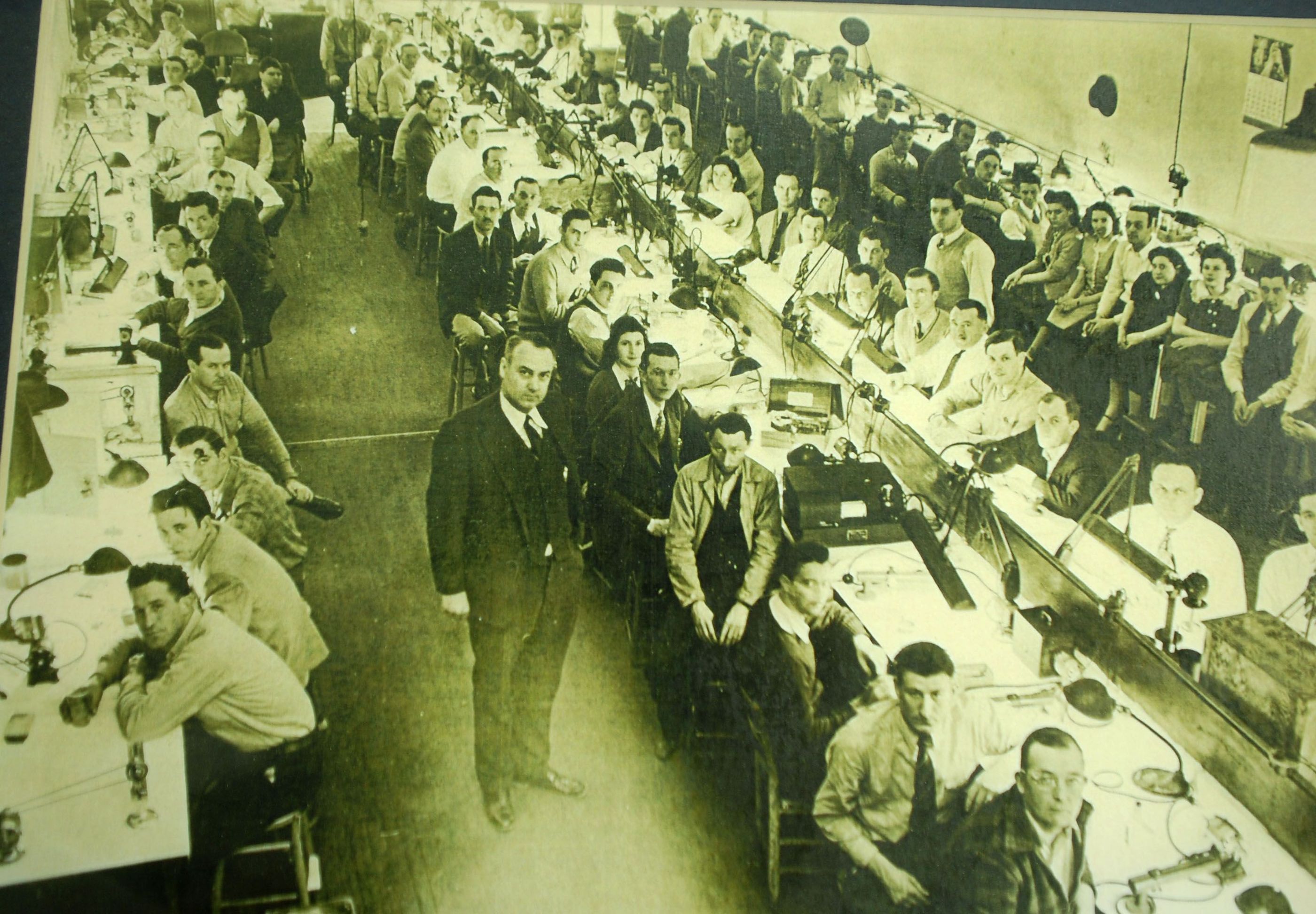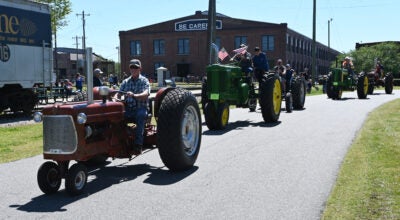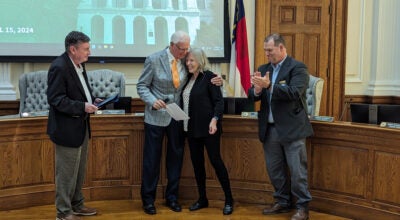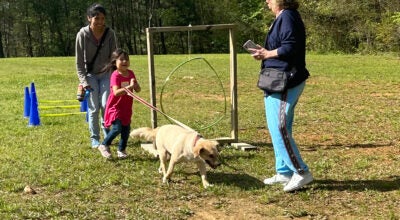Wineka column: Herman Trexler time travels back to Spencer Watchmaking School
Published 12:00 am Saturday, June 7, 2014
SPENCER — When you’ve reached the age of 94, as Herman Trexler has, you know all about time — you’ve lived and measured plenty of it.
But there was a good decade or so after World War II when time was Trexler’s bread and butter.
Almost crippled by a severe fall off the back of an Army truck while carrying a 50-caliber machine gun, Trexler first attended the Spencer School of Watchmaking as a vocational rehabilitation student.
The G.I. Bill ended up paying for his tuition.
Trexler had broken the arches in both feet in his Army injury and could hardly walk after being discharged. Later, after working briefly for a jeweler in Georgia, Trexler returned to Spencer and spent almost a decade as an instructor for C.E. Kneeburg, who founded the watchmaking school with one student in 1929.
Trexler strolled down memory lane this week when he returned to his native Rowan County, visited with relatives, stopped at some old home places and made a brief tour of Spencer.
Trexler’s son Mike and daughter-in-law Vickie served as his chauffeurs, and the trio luckily met Debbie Barnhardt, who operates the jewelry store in Spencer.
Barnhardt knows a lot about the history of the Spencer Watchmaking School. She cherishes the three watchmaker’s benches she owns from the old school and has handsomely preserved in frames many photographs and newspaper articles about Kneeburg’s enterprise, which operated in Spencer almost 40 years.
Her uncle, Harold Thompson of Columbia, S.C., attended the school before going into business for himself. Now 91, Thompson only recently retired as a jeweler.
“He is truly my hero,” Barnhardt said of her uncle.
Barnhardt and the Trexlers found much to talk about, and Barnhardt arranged for the visitors to have a look inside the old watchmaking school building, which has some blue siding today and is located on South Salisbury Avenue next to the Little Choo Choo Shop.
“I remembered it all,” said Trexler, who left Rowan County for Florida in 1957 and built an entirely new career in construction. Today, he’s long retired and living next to Mike and Vickie in Abbeville, S.C.
His wife of 71 years, Tessie Patterson Trexler, died not too long ago.
ggg
Trexler recalled that two men near the front of the Spencer school were the guys charged with calibrating the watches of Southern Railway trainmen who would stop in.
He described Kneeburg, who was an official watch inspector for Southern, as a good friend and a decent man to work with.
When Trexler attended the school as a student, enrollment was probably at its zenith. For several years, annual rolls were over 100 students, many of them veterans such as Trexler who had been disabled.
Others were sent to Spencer Watchmaking School by the state vocational rehabilitation department, and other students paid their own way.
In January 1946, for example, the enrollment stood at 104, and 25 of those men were veterans. Kneeberg reported he had a long waiting list to get in.
According to yellowed newspaper articles, the schooling took eight to 10 months to complete, and tuition ranged from $800 to $900 a year. But Trexler remembered it taking longer for him.
“I made a lot of good friends,” Trexler said, adding if you wanted to be a good watchmaker, the Spencer school was the place to go.
A boarding house for many of the veterans and state-referred students also was available close by.
Students worked through several phases of instruction, including the filing and making of tools they would use later, training on a lathe to make balance staffs, watch repair, jeweling and the truing of hair springs.
Trexler said he also learned how to size rings and other facets of the jewelry business. As with all the men and women referred to the watchmaking school, Trexler first was given a test by the state to see what his aptitudes were.
“It said I would make a good watchmaker,” he said.
Later, when he became an instructor, Trexler was one of four teachers at the school. As enrollment lagged and more and more people started wearing cheaper timepieces, Trexler was laid off. He packed up his family, traveled across the country to California, hated it out West and drove all the way back to West Palm Beach, Fla, where he made a good living in construction.
ggg
By the time the watchmaking school closed in 1968, Kneeburg estimated 1,325 students had graduated, including 52 women.
The school started in 1929 when Kneeburg was asked by the state to teach a man disabled with infantile paralysis.
In the next year, he added 12 more physically disabled students referred to him, and he graduated his first class.
Students sometimes attended classes six days a week, from 8 a.m-5:45 p.m., if they were trying to compress their training.
Instruction pretty much took place in one large room, much like a barn. Work benches, with special slide-out tables and lots of tiny drawers extended down each side wall and also through the middle of the room.
Head instructor J.C. Mabrey sat up front, and Kneeburg, an East Spencer native who learned watchmaking at Bowman Technical School in Lancaster, Pa., had a place in the rear.
Kneeburg gave up a better-paying job with Southern Railroad to take up watchmaking.
Each student was furnished with a set of tools.
Though the language isn’t quite politically correct today, the Salisbury Post reported in 1938 that “the rehabilitation department furnishes crippled and disabled young people an opportunity to learn several trades, but watchmaking and the jewelry business is one of the most popular.”
At that time, the school had 16 students, and the 132 graduates up to then had gone off to be employed or set up their own jewelry stores in places such as Michigan, Florida, Maryland, Washington, D.C., and many towns in North Carolina.
ggg
For some reason, though he was through with watchmaking, Herman took his tools with him to Florida. One day he received a telephone call from Mabrey, who also had a jewelry store in Spencer. Mabrey had a son who wanted to become a watchmaker, and he asked Trexler whether he could buy his tool set.
Trexler refused to take any money for the tools and sent them on a bus to be delivered to Spencer.
Later, he would see Mabrey, who again offered to pay him for the tools. Trexler asked instead whether Mabrey would consider a ring for the tools.
“I had never had a nice ring,” Trexler said. “I still got it.”
But as he spoke about the old days, Trexler paused and chastised himself. He held up his arm and confessed the unthinkable:
He had forgotten to wear his watch.
Contact Mark Wineka at 704-797-4263, or mwineka@salisburypost.com.






